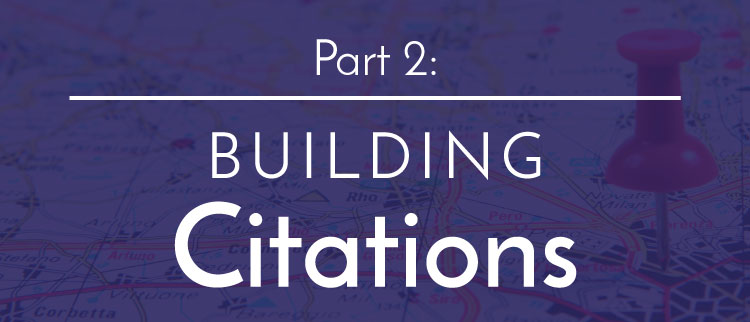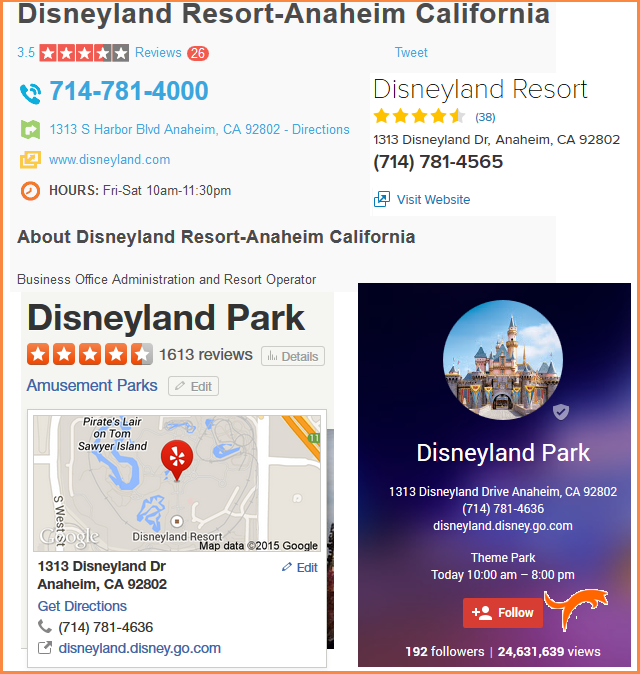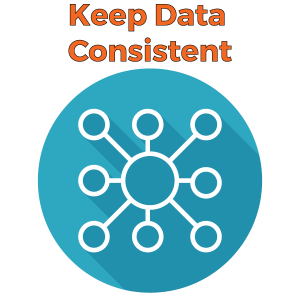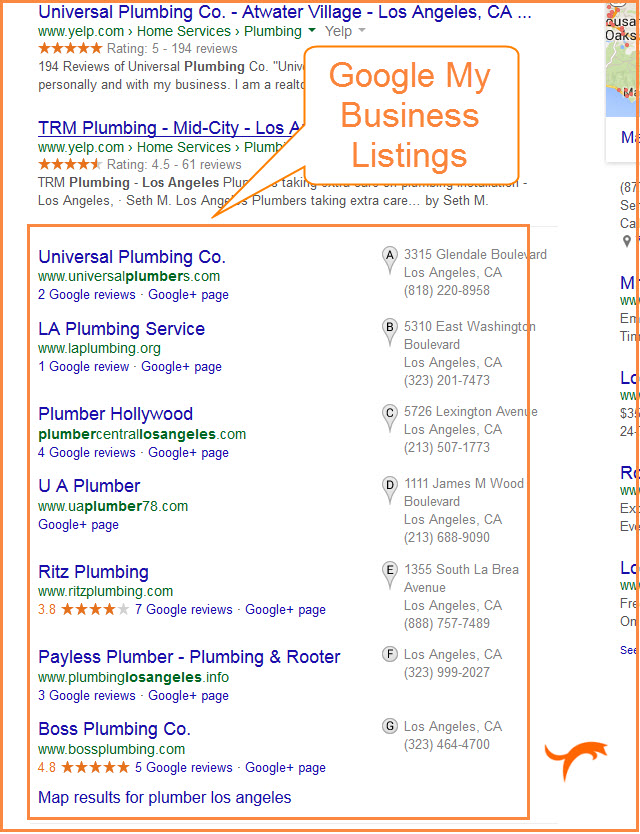Are Citations Important for Local Businesses?
Have you heard the recent buzz about citations?
There are people who are huge fans of citations… and others who are not! Today we’re going to help you separate the facts from the myths about citations.

Your objective in this chapter is to learn about citations and discern the facts about citations from the myths.
Let’s get started!
What are Citations?
What are citations and how do they work?
A citation is simply a listing of your business name, address and phone number (aka NAP). Typically, you can find these in a local directory site like Yelp, Merchant Circle or Yellow Pages. They usually include: website, hours of operation, description, categories and logo/photo. Additionally, some sites link to social media properties, videos, reviews, maps and a way to showcase your products or services.
Here are a few examples of citations:

Having a business listed in these directories can help you in three ways:
- Your business will be listed in places where potential customers are already “hanging out” online.
- You will receive a backlink to your website from a high quality website.
- Each listing counts as a citation, which can improve your ranking with other directory sites
How to Properly Setup Citations
 Setting up citations is not difficult on most sites. It does, however, take some time.
Setting up citations is not difficult on most sites. It does, however, take some time.
The good news? In comparison to optimizing a website, these sites are much easier.
Just remember the most important action to take when you’re setting up these sites is to keep your data consistent across all sites. For example, if you use “Ave.” in one listing, you’ll want to keep using that everywhere. (Don’t change it to “Avenue” or “Ave.”)
If your business has been around for a long time, many of these sites may already have your business listed. However, some of the data may be wrong or slightly off. For newer businesses, these websites may not even know you exist. Either way, it’s important that you claim or create these listings.
How do you set up citations?
Step 1: Pull up your company’s “Google My Business” page. To do this, go to google.com/business, and click “Get on Google.” On the following page, you will have to enter your business name and address. (If you can’t find your business, try using your business name and city/state.) If your business does not generate in the results, you’ll need to create a page.
In the address box you should see the address of your business. Since Google is basically the go-to resource for local searches, you want to use what they have in terms of abbreviations (unless it’s incorrect; if so, fix it). Copy this info to a text file and continue to the next step.
Step 2: Go to your website and check the address you have listed. If it is in more than one location, find everywhere it’s listed. Make sure all listings match what shows up on Google My Business.
Step 3: This is the fun part! Now you can start adding your business to other citation sources. We recommend starting with the following sites:
You may run into issues using some of the sites on occasion. This is normal. The key? Get as many as you can and fill out each profile as much as possible. Remember to use the text file you created earlier as an easy way to copy and paste information so it stays consistent.
 Some sites may require you to verify your email address or phone number. Don’t forget this step! If so, your listing may not show. (For businesses that have been around for awhile, these sites may already have your information; make sure to search for the page before creating a new one. If you find a listing that already exists for your website, make sure to claim it so you can fix any misinformation and add missing details.)
Some sites may require you to verify your email address or phone number. Don’t forget this step! If so, your listing may not show. (For businesses that have been around for awhile, these sites may already have your information; make sure to search for the page before creating a new one. If you find a listing that already exists for your website, make sure to claim it so you can fix any misinformation and add missing details.)
Certain sites may contact you attempting to sell you additional advertising. The choice is is up to you but what we have found is that most of these sites are simply not worth the extra money. The only exception may be Yelp but it will be dependent on your industry on whether or not it is worth it.
How Important Are Citations?
Similar to back links for websites, citations tell the search engines that you are a local and real business. The problem a lot of businesses run into is they have inconsistent data. One site says the business is located “South 6th Street,” while the next says “Sixth St.” and yet another says “6th St South.” This sends a confusing message to search engines, and it gives them the idea that your business may not be legitimate. Similarly, if you have an old phone number that has been disconnected, your business may lose potential customers and your business’ reputation may be tarnished.
The importance of citations depends on whether or not you have a physical location for your business. If people are visiting your location (store, restaurant, etc.) it is vital that your citations are properly set up. When citations are exactly the same across all sites it gives you the greatest chances of ranking, not only in the Google organic search, but also in the Google My Business listings (formerly “Google Local”).
Even if you don’t have a physical location, there are still benefits to having citations. Google still shows Google My Business results for non-address listings in certain niches. What this means is that you have a chance to show up twice on the first page!
Check out the example below:

A Note of Caution
It is a good idea to get your business listed in a number of different directories. However, beware of companies that promise to add you to thousands of directories. Typically the majority of them are low quality and can hurt your reputation and rankings. The bigger ones are the most important, so skip the low quality citation listings.
Final Thoughts
This can be a time-consuming process, but the results are worth it. The good news? Unless your business moves or changes dramatically, you will not need to do this again. With that being said, it’s a good idea to keep an eye on the pages for reviews left by customers. Whether people leave a positive or negative review, it’s a good idea to respond. Don’t be defensive about negative reviews; just offer to help and move on! Thank happy customers for leaving positive reviews, too.
You’ve met your objective in this chapter of learning about citations and discerning the facts about citations from the myths.
Let’s move onto the next chapter!